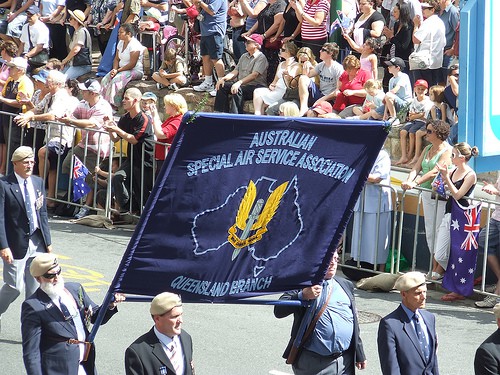The Chief of the Australian Army, Lieutenant General Rick Burr, has announced that one of the operational squadrons of the Special Air Service Regiment has been disbanded in the wake of the report published yesterday outlining numerous unlawful killings carried out by special forces members serving in Afghanistan.
“The issues in the inquiry report are so shocking that a clear message is required,” Burr said in a statement released by military headquarters in Canberra last night.
Squadron was formed in 1960s
In simple terms, this means the unit of 90-plus special forces soldiers and support personnel will now cease to exist and all battle honours will be stripped from the squadron, which was first deployed in the Malayan conflict of the 1960s.

Burr said that although the incidents outlined in the inquiry occurred across the SAS Regiment, the report has made it clear that there was “a nexus of alleged serious criminal activities in 2 Squadron” at that time.
The gap that would now occur in the regiment’s squadron numbering system would serve as a reminder to future generations of soldiers as to what had occurred.
Accept wrongdoings of the past
Until yesterday’s decision the regiment had four fighting squadrons (including 2 Squadron) and three support squadrons.
Burr emphasised that the decision was not a reflection on the current serving members of 2 Squadron, but on those who has been in the unit during the operations in Afghanistan.
“But we all must accept the wrongdoings of the past. Current members of the squadron will be reassigned to other sub-units within the Regiment,” he stated.
“It’s important we learn from this experience and begin the healing process so we can focus on the future. This must never be allowed to happen again, anywhere in our army.
Individuals will be held to account
“Our profession demands we must always operate lawfully, ethically and responsibly. Even in the most complex and challenging environments.”
Burr said he would continue to analyse the extensive findings of the inquiry and, where there was evidence of misconduct, individuals would be held to account.
He added that plans would also be accelerated to assign soldiers from Special Forces Command to serve time in other units outside the command.
“This will enable respite, regeneration, broadening of perspectives and to share knowledge and skills throughout the army,” he said.












